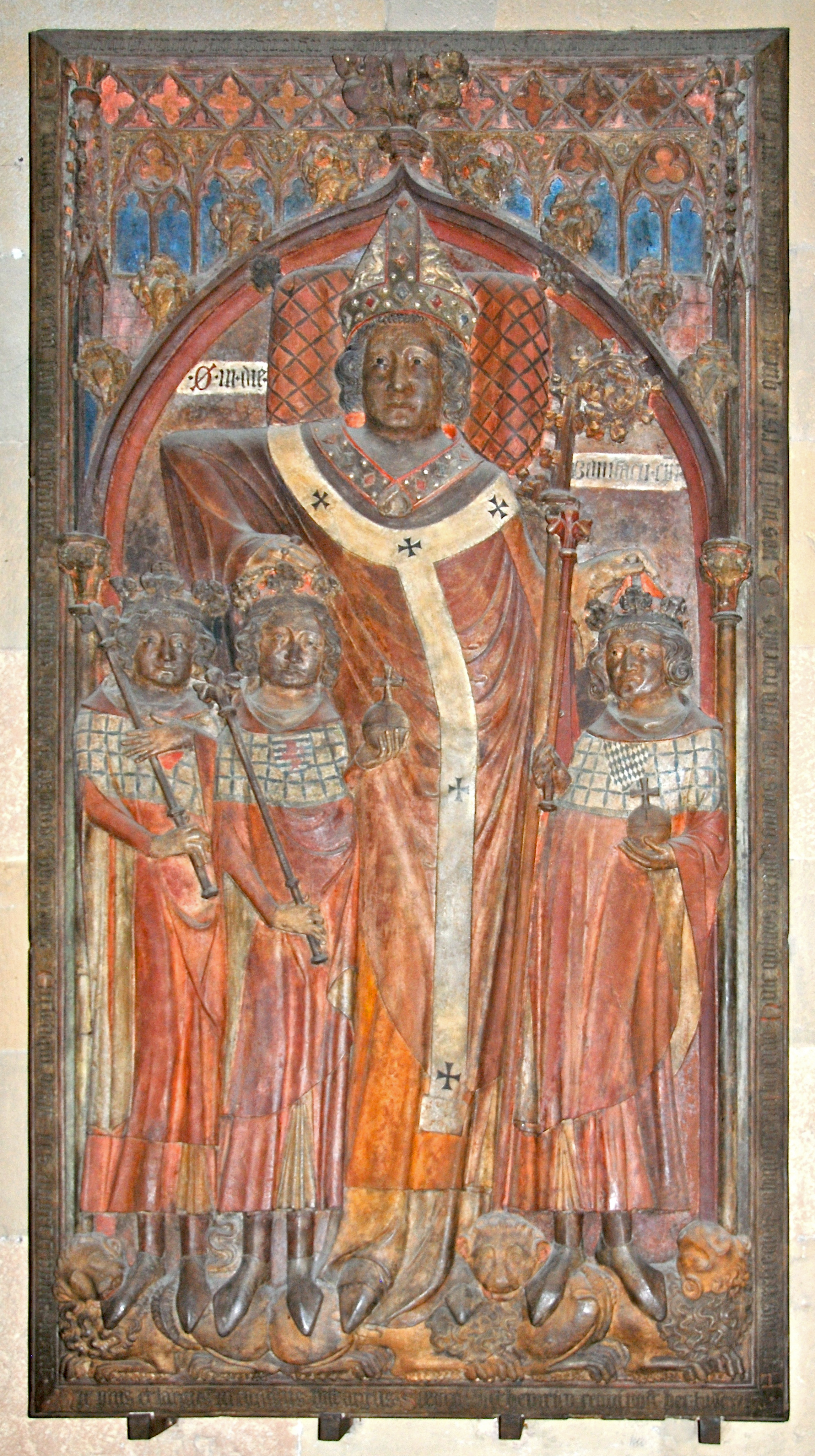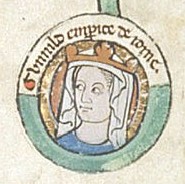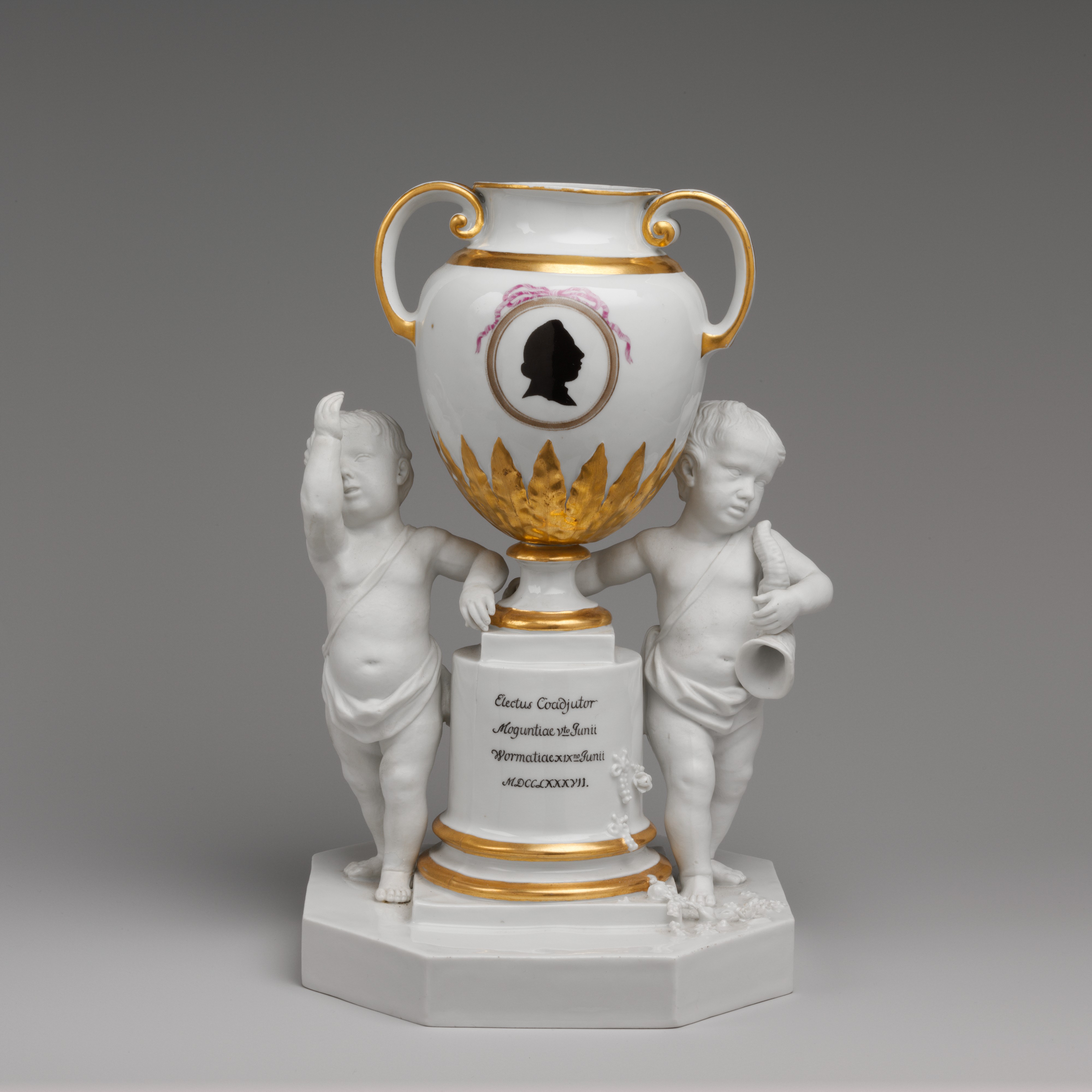|
Archchancellor
An archchancellor ( la, archicancellarius, german: Erzkanzler) or chief chancellor was a title given to the highest dignitary of the Holy Roman Empire, and also used occasionally during the Middle Ages to denote an official who supervised the work of chancellors or notaries. The Carolingian successors of Pepin the Short appointed chancellors over the whole Frankish realm in the ninth century. Hincmar refers to this official as a ''summus cancellarius'' in ''De ordine palatii et regni'' and an 864 charter of King Lothair I refers to Agilmar, Archbishop of Vienne, as archchancellor, a word which also begins appearing in chronicles about that time. The last Carolingian archchancellor in West Francia was Archbishop Adalberon of Reims (969-988), with the accession of Hugh Capet the office was replaced by a ''Chancelier de France''. At the court of Otto I, then King of Germany, the title seems to have been an appanage of the Archbishop of Mainz. After Otto had finally deposed King ... [...More Info...] [...Related Items...] OR: [Wikipedia] [Google] [Baidu] |
Chancellor Of Germany (Federal Republic)
The chancellor of Germany, officially the federal chancellor of the Federal Republic of Germany,; often shortened to ''Bundeskanzler''/''Bundeskanzlerin'', / is the head of the federal government of Germany and the commander in chief of the German Armed Forces during wartime. The chancellor is the chief executive of the Federal Cabinet and heads the executive branch. The chancellor is elected by the Bundestag on the proposal of the federal president and without debate (Article 63 of the German Constitution). The current officeholder is Olaf Scholz of the SPD, who was elected in December 2021, succeeding Angela Merkel. He was elected after the SPD entered into a coalition agreement with Alliance 90/The Greens and the FDP. History of the office The office of Chancellor has a long history, stemming back to the Holy Roman Empire, when the office of German archchancellor was usually held by archbishops of Mainz. The title was, at times, used in several states of German-spea ... [...More Info...] [...Related Items...] OR: [Wikipedia] [Google] [Baidu] |
Chancellor Of Germany (German Reich)
The chancellor of Germany, officially the federal chancellor of the Federal Republic of Germany,; often shortened to ''Bundeskanzler''/''Bundeskanzlerin'', / is the head of the federal government of Germany and the commander in chief of the German Armed Forces during wartime. The chancellor is the chief executive of the Federal Cabinet and heads the executive branch. The chancellor is elected by the Bundestag on the proposal of the federal president and without debate (Article 63 of the German Constitution). The current officeholder is Olaf Scholz of the SPD, who was elected in December 2021, succeeding Angela Merkel. He was elected after the SPD entered into a coalition agreement with Alliance 90/The Greens and the FDP. History of the office The office of Chancellor has a long history, stemming back to the Holy Roman Empire, when the office of German archchancellor was usually held by archbishops of Mainz. The title was, at times, used in several states of German-speak ... [...More Info...] [...Related Items...] OR: [Wikipedia] [Google] [Baidu] |
Otto I, Holy Roman Emperor
Otto I (23 November 912 – 7 May 973), traditionally known as Otto the Great (german: Otto der Große, it, Ottone il Grande), was East Francia, East Frankish king from 936 and Holy Roman Emperor from 962 until his death in 973. He was the oldest son of Henry the Fowler and Matilda of Ringelheim. Otto inherited the Duchy of Saxony and the kingship of the Germans upon his father's death in 936. He continued his father's work of unifying all Germans, German tribes into a single kingdom and greatly expanded the king's powers at the expense of the aristocracy. Through strategic marriages and personal appointments, Otto installed members of his family in the kingdom's most important duchies. This reduced the various dukes, who had previously been co-equals with the king, to royal subjects under his authority. Otto transformed the church in Germany to strengthen royal authority and subjected its clergy to his personal control. After putting down a brief civil war among the rebellious ... [...More Info...] [...Related Items...] OR: [Wikipedia] [Google] [Baidu] |
Archbishopric Of Mainz
The Electorate of Mainz (german: Kurfürstentum Mainz or ', la, Electoratus Moguntinus), previously known in English as Mentz and by its French name Mayence, was one of the most prestigious and influential states of the Holy Roman Empire. In the Roman Catholic hierarchy, the Archbishop-Elector of Mainz was also the Primate of Germany ('), a purely honorary dignity that was unsuccessfully claimed from time to time by other archbishops. There were only two other ecclesiastical Prince-electors in the Empire: the Electorate of Cologne and the Electorate of Trier. The Archbishop-Elector of Mainz was also archchancellor of Germany (one of the three component titular kingdoms of the Holy Roman Empire, the other two being Italy and Burgundy) and, as such, ranked first among all ecclesiastical and secular princes of the Empire, and was second only to the Emperor. His political role, particularly as an intermediary between the Estates of the Empire and the Emperor, was considerable. ... [...More Info...] [...Related Items...] OR: [Wikipedia] [Google] [Baidu] |
Kingdom Of Burgundy-Arles
The Kingdom of Burgundy, known from the 12th century as the Kingdom of Arles, also referred to in various context as Arelat, the Kingdom of Arles and Vienne, or Kingdom of Burgundy-Provence, was a realm established in 933 by the merger of the kingdoms of Upper and Lower Burgundy under King Rudolf II. It was incorporated into the Holy Roman Empire in 1033 and from then on was one of the empire's three constituent realms, together with the Kingdom of Germany and the Kingdom of Italy. By the mid-13th century at the latest, however, it had lost its concrete political relevance. Its territory stretched from the Mediterranean Sea to the High Rhine River in the north, roughly corresponding to the present-day French regions of Provence-Alpes-Côte d'Azur, Rhône-Alpes and Franche-Comté, as well as western Switzerland. Until 1032 it was ruled by independent kings of the Elder House of Welf.''The New Columbia Encyclopedia'' 1975, 150 Carolingian Burgundy Since the conquest of the First ... [...More Info...] [...Related Items...] OR: [Wikipedia] [Google] [Baidu] |
Henry III, Holy Roman Emperor
Henry III (28 October 1016 – 5 October 1056), called the Black or the Pious, was Holy Roman Emperor from 1046 until his death in 1056. A member of the Salian dynasty, he was the eldest son of Conrad II and Gisela of Swabia. Henry was raised by his father, who made him Duke of Bavaria in 1026, appointed him co-ruler in 1028 and bestowed him with the duchy of Swabia and the Kingdom of Burgundy ten years later in 1038. The emperor's death the following year ended a remarkably smooth and harmonious transition process towards Henry's sovereign rule, that was rather uncharacteristic for the Ottonian and Salian monarchs. Henry succeeded Conrad II as Duke of Carinthia and King of Italy and continued to pursue his father's political course on the basis of ''virtus et probitas'' (courage and honesty), which led to an unprecedented sacral exaltation of the kingship. In 1046 Henry ended the papal schism, was crowned Emperor by Pope Clement II, freed the Vatican from dependence on the Roma ... [...More Info...] [...Related Items...] OR: [Wikipedia] [Google] [Baidu] |
Weimar Republic
The Weimar Republic (german: link=no, Weimarer Republik ), officially named the German Reich, was the government of Germany from 1918 to 1933, during which it was a constitutional federal republic for the first time in history; hence it is also referred to, and unofficially proclaimed itself, as the German Republic (german: Deutsche Republik, link=no, label=none). The state's informal name is derived from the city of Weimar, which hosted the constituent assembly that established its government. In English, the republic was usually simply called "Germany", with "Weimar Republic" (a term introduced by Adolf Hitler in 1929) not commonly used until the 1930s. Following the devastation of the First World War (1914–1918), Germany was exhausted and sued for peace in desperate circumstances. Awareness of imminent defeat sparked a revolution, the abdication of Kaiser Wilhelm II, formal surrender to the Allies, and the proclamation of the Weimar Republic on 9 November 1918. In its i ... [...More Info...] [...Related Items...] OR: [Wikipedia] [Google] [Baidu] |
German Empire
The German Empire (),Herbert Tuttle wrote in September 1881 that the term "Reich" does not literally connote an empire as has been commonly assumed by English-speaking people. The term literally denotes an empire – particularly a hereditary empire led by an emperor, although has been used in German to denote the Roman Empire because it had a weak hereditary tradition. In the case of the German Empire, the official name was , which is properly translated as "German Empire" because the official position of head of state in the constitution of the German Empire was officially a "presidency" of a confederation of German states led by the King of Prussia who would assume "the title of German Emperor" as referring to the German people, but was not emperor of Germany as in an emperor of a state. –The German Empire" ''Harper's New Monthly Magazine''. vol. 63, issue 376, pp. 591–603; here p. 593. also referred to as Imperial Germany, the Second Reich, as well as simply Germany, ... [...More Info...] [...Related Items...] OR: [Wikipedia] [Google] [Baidu] |
Karl Theodor Anton Maria Von Dalberg
Karl Theodor Anton Maria von Dalberg (8 February 1744 – 10 February 1817) was Prince- Archbishop of Regensburg, Arch-Chancellor of the Holy Roman Empire, Bishop of Constance and Worms, prince-primate of the Confederation of the Rhine and Grand Duke of Frankfurt. Early life and career Born in Herrnsheim near Worms, Germany, as a member of Dalberg family, he was the son of Franz Heinrich von Dalberg (1716–1776), administrator of Worms, one of the chief counsellors of the Prince-elector and Archbishop of Mainz and his wife Baroness Maria Sophie Anna von Eltz-Kempenich (1722–1763). Karl devoted himself to the study of canon law, and entered the church. Having been appointed in 1772 governor of Erfurt, he won further advancement by his successful administration. In 1787 he was elected coadjutor cum iure successionis of the Archbishopric of Mainz and the Bishopric of Worms, and in 1788 of the Bishopric of Constance; at the same time, he became titular archbishop ... [...More Info...] [...Related Items...] OR: [Wikipedia] [Google] [Baidu] |
German Mediatisation
German mediatisation (; german: deutsche Mediatisierung) was the major territorial restructuring that took place between 1802 and 1814 in Germany and the surrounding region by means of the mass mediatisation and secularisation of a large number of Imperial Estates. Most ecclesiastical principalities, free imperial cities, secular principalities, and other minor self-ruling entities of the Holy Roman Empire lost their independent status and were absorbed into the remaining states. By the end of the mediatisation process, the number of German states had been reduced from almost 300 to just 39. In the strict sense of the word, mediatisation consists in the subsumption of an immediate () state into another state, thus becoming ''mediate'' (), while generally leaving the dispossessed ruler with his private estates and a number of privileges and feudal rights, such as low justice. For convenience, historians use the term ''mediatisation'' for the entire restructuring process that to ... [...More Info...] [...Related Items...] OR: [Wikipedia] [Google] [Baidu] |
Imperial Election
The election of a Holy Roman Emperor was generally a two-stage process whereby, from at least the 13th century, the King of the Romans was elected by a small body of the greatest princes of the Empire, the prince-electors. This was then followed shortly thereafter by his coronation as Emperor by the Pope. In 1356, the Emperor Charles IV promulgated the Golden Bull, which became the fundamental law by which all future kings and emperors were elected. After 1508, the Pope recognized election alone to be sufficient for the use of the Imperial title. The last papal coronation took place in 1530. Although the Holy Roman Empire is perhaps the best-known example of an elective monarchy, only members of the Habsburg dynasty were elected emperor between 1438 and 1740, making the empire a ''de facto'' hereditary monarchy during that period. Background The ''Königswahl'' was the election of royal candidates in the Holy Roman Empire and its predecessors as king by a specified elective ... [...More Info...] [...Related Items...] OR: [Wikipedia] [Google] [Baidu] |
Prince-elector
The prince-electors (german: Kurfürst pl. , cz, Kurfiřt, la, Princeps Elector), or electors for short, were the members of the electoral college that elected the emperor of the Holy Roman Empire. From the 13th century onwards, the prince-electors had the privilege of electing the monarch who would be crowned by the pope. After 1508, there were no imperial coronations and the election was sufficient. Charles V (elected in 1519) was the last emperor to be crowned (1530); his successors were elected emperors by the electoral college, each being titled "Elected Emperor of the Romans" (german: erwählter Römischer Kaiser; la, electus Romanorum imperator). The dignity of elector carried great prestige and was considered to be second only to that of king or emperor. The electors held exclusive privileges that were not shared with other princes of the Empire, and they continued to hold their original titles alongside that of elector. The heir apparent to a secular prince-ele ... [...More Info...] [...Related Items...] OR: [Wikipedia] [Google] [Baidu] |



.jpg)




